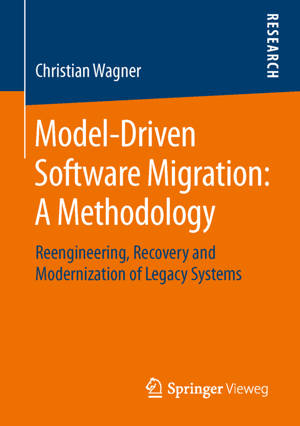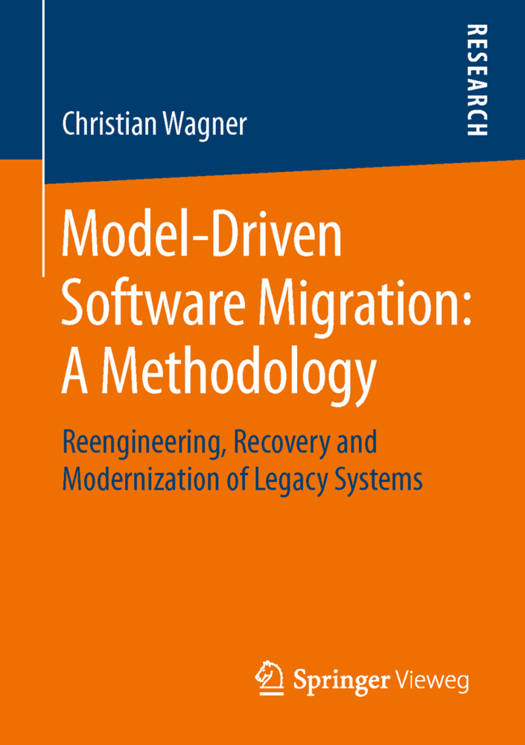
- Afhalen na 1 uur in een winkel met voorraad
- Gratis thuislevering in België vanaf € 30
- Ruim aanbod met 7 miljoen producten
- Afhalen na 1 uur in een winkel met voorraad
- Gratis thuislevering in België vanaf € 30
- Ruim aanbod met 7 miljoen producten
Zoeken
Model-Driven Software Migration: A Methodology
Reengineering, Recovery and Modernization of Legacy Systems
Christian Wagner
Paperback | Engels
€ 126,95
+ 253 punten
Omschrijving
Today, reliable software systems are the basis of any business or company. The continuous further development of those systems is the central component in software evolution. It requires a huge amount of time- man power- as well as financial resources. The challenges are size, seniority and heterogeneity of those software systems. Christian Wagner addresses software evolution: the inherent problems and uncertainties in the process. He presents a model-driven method which leads to a synchronization between source code and design. As a result the model layer will be the central part in further evolution and source code becomes a by-product. For the first time a model-driven procedure for maintenance and migration of software systems is described. The procedure is composed of a model-driven reengineering and a model-driven migration phase. The application and effectiveness of the procedure are confirmed with a reference implementation applied to four exemplary systems.
Specificaties
Betrokkenen
- Auteur(s):
- Uitgeverij:
Inhoud
- Aantal bladzijden:
- 304
- Taal:
- Engels
Eigenschappen
- Productcode (EAN):
- 9783658052690
- Verschijningsdatum:
- 18/03/2014
- Uitvoering:
- Paperback
- Formaat:
- Trade paperback (VS)
- Afmetingen:
- 148 mm x 210 mm
- Gewicht:
- 435 g

Alleen bij Standaard Boekhandel
+ 253 punten op je klantenkaart van Standaard Boekhandel
Beoordelingen
We publiceren alleen reviews die voldoen aan de voorwaarden voor reviews. Bekijk onze voorwaarden voor reviews.











